The Economics and Statistics Division maintains archives of previous publications for accountability purposes, but makes no updates to keep these documents current with the latest data revisions from Statistics Canada. As a result, information in older documents may not be accurate. Please exercise caution when referring to older documents. For the latest information and historical data, please contact the individual listed to the right.
<--- Return to Archive
For additional information relating to this article, please contact:
February 23, 2017EMPLOYMENT, EARNINGS AND HOURS, DECEMBER AND ANNUAL 2016 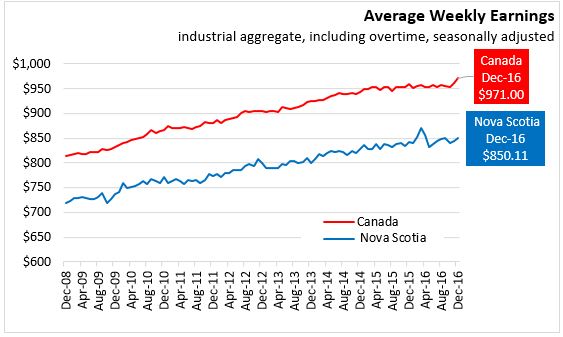
Nova Scotians' average weekly earnings (including overtime, seasonally adjusted) increased $5.80 (0.7 per cent) from revised November results to $850.11 in December 2016. The current level is 0.9 per cent higher than its level in December of last year. Canadians' average weekly wages increased 1.0 per cent from November to $971.00 in December 2016, up 1.2 per cent from its level in December of last year.
Nova Scotia average weekly wages increased six of the seven previous months.
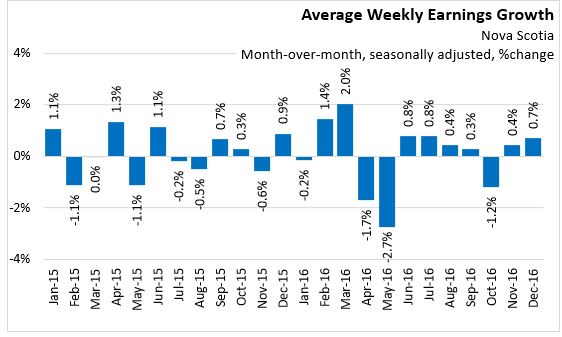

In general, changes in weekly earnings reflect a number of factors, including wage growth; changes in the composition of employment by industry, occupation and level of job experience; and average hours worked per week.
In 2016, average weekly wages increased 0.5 percent in Canada. Average weekly wages have been growing fastest in the Maritime provinces. Nova Scotia's average weekly wages have averaged 1.5 per cent above the levels reported in 2015. Only New Brunswick (2.5 per cent) and Prince Edward Island (2.3 per cent) report faster growth than in Nova Scotia.
Average weekly wage growth is slower, but still positive in Quebec, Ontario, Manitoba, Saskatchewan and British Columbia. Average weekly wages are down in Alberta as well as in Newfoundland and Labrador.

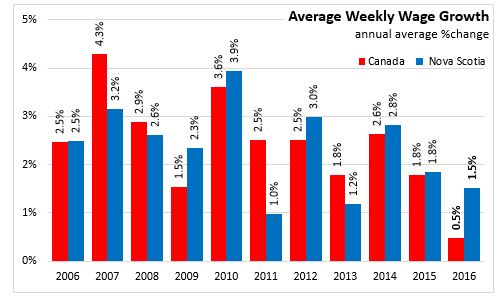
In December 2016, average weekly earnings increased 0.6 per cent in Nova Scotia's goods sectors and 0.5 per cent in Nova Scotia's service sectors.
Average weekly earnings in 2016 are 1.5 per cent higher, with a 0.3 per cent increase in goods sector and a 1.8 per cent increase in the services-producing sector. The largest increase is in the Real estate and rental and leasing sector.
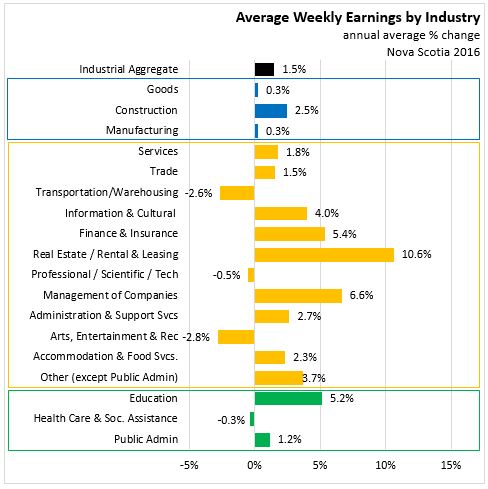
EMPLOYMENT
In December 2016, Nova Scotia had 403,419 payroll employees, a 0.1 per cent decrease from November, and unchanged from levels observed in December of last year. Canada had 16.1 million employees, up 0.2 per cent from November 2016, and 1.3 per cent above levels observed in December 2015.
In 2016, Nova Scotia has averaged 402,625 payroll employees, up 0.1 per cent from 2015. This increase in payroll employment of 339 persons is largely attributable to an increase at unclassified businesses. Among classified businesses, payroll employment is down for both goods (-0.9 per cent) and services (-0.3 per cent) sectors.

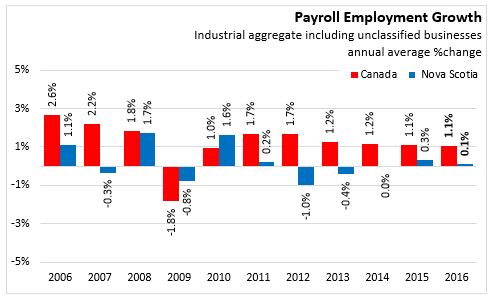
REFERENCE TABLES - ANNUAL AVERAGE
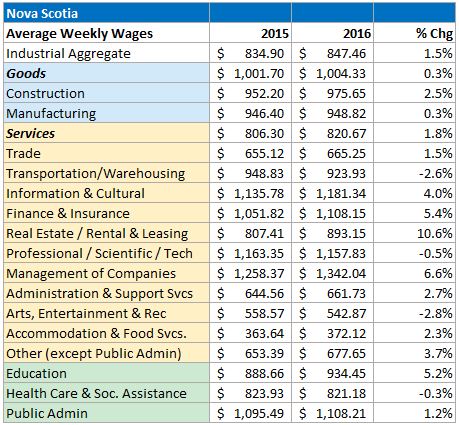
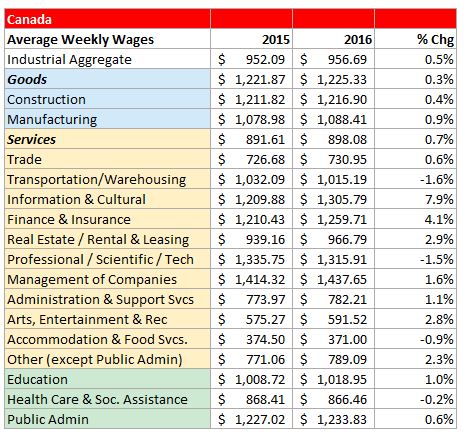
Source: Statistics Canada, Survey of Employment, Payroll, and Hours. CANSIM Table 281-0063, 281-0049
<--- Return to Archive